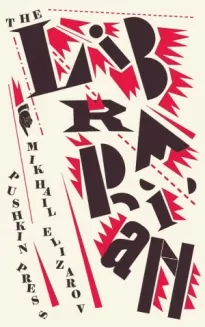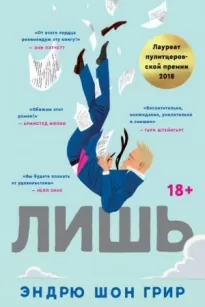The Librarian

- Автор: Михаил Елизаров
- Жанр: Современная проза / Социальная фантастика
- Дата выхода: 2015
Читать книгу "The Librarian"
MARAT ANDREYEVICH
HE WAS A COLLEAGUE of Uncle Maxim’s, working with him in a clinic until my uncle was sacked. Marat Andreyevich Dezhnev’s family life was a failure. He and his wife had separated, although this had been very hard for him—he loved his two daughters very much. His only joy was the weekends, when he went to his former wife’s home and collected the girls for a whole day, to go walking with them in the park or take them to the cinema. For ten years those Sunday excursions were the only solace of his life.
At the beginning of the Nineties his wife and her new husband emigrated. Marat Andreyevich accepted his bitter loss in the realization that the girls would be better off in distant Canada. In any case, Dezhnev’s life became even more emotionally impoverished, and he was threatened by a loneliness he had never known before.
On one of his dreary Sunday evenings he met my Uncle Maxim. They were both equally amazed by the changes that had taken place in the course of a few years. Marat Andreyevich saw before him a happy, confident man who had giving up drinking for ever. Dezhnev, on the contrary, astounded my uncle with his seedy appearance and bitter dejection. Uncle Maxim took pity on his former colleague and invited him to join the reading room. That was shortly before the events at Neverbino.
Uncle Maxim was not mistaken in his choice. Dezhnev fitted into the collective perfectly—a courageous, solitary, cultured individual. The Shironin reading room respected and cherished Marat Andreyevich.
I’m glad that those first watches were taken by readers like Tanya Miroshnikova and Dezhnev. Their calm, benevolent attitude, exceptional delicacy and wit had a beneficial effect on me.
I greatly enjoyed listening to Marat Andreyevich, relishing the amazing overtones of his wry voice that crackled slightly, like kindling in a fireplace; the picture that it conjured up, in combination with Marat Andreyevich’s skinny, slightly stooped figure and the pearwood pipe smoking in his hand, was remarkably serene, and the words “Listen here, Alexei…” sounded like “Listen here, Watson…”
How much I needed that rational, calm dialogue when fear and uncertainty tormented my soul. But the moment Marat Andreyevich struck up a conversation I knew that this phonic therapy would set everything in the right perspective and free me from the bonds of nightmare and suspicion.
Marat Andreyevich willingly shared with me his years of experience in exploring Gromov’s work.
“When you get right down to it, Alexei, the Books are essentially complex, extensive sequences of signs and signals with a broad psychosomatic spectrum. They could be called drugs or, even better, programs. Each program-Book is equipped with a resident subroutine—a coded subtext that is activated when the Two Conditions of intent reading are met. The resident routine is screened from conscious awareness and propagates aggressively at the subconscious level, temporarily changing or, it would be better to say, deforming the personality of the reader. Under conditions in which an individual’s spiritual activity is suppressed, this induces an abrupt correction of the organism’s psycho-physiological processes, resulting in the hyperstimulation of its innermost resources, the nerve centres responsible for memory and emotion. I’m not making this explanation too recondite, am I? The most interesting thing is that the resident routine cannot be identified on the external, artistic level, because it’s dispersed across the entire informational field of the program. It’s present not only in the acoustic, neurolinguistic and semantic spectra of the Book, but also in the visual spectrum—that is, in the printing: the typeface, the paper, the layout, the format. And also—and this is very important—in the chronological spectrum. What I’m leading up to, Alexei, is this: a pile of photocopies will never be a book published in 1977. There are no methods or technologies in the world capable of transforming a product of the year 2000 into an item produced in 1977. It is also impossible to forge a Book, because it carries the energetic charge of its own time.”
I noticed that Marat Andreyevich avoided talking about his own experiences with the Book. This seemed rather strange—as if a driver who chatters eagerly about the technical features of his car for some reason keeps everything that he has seen out on the road a strict secret.
Marat Andreyevich was so personable and charming that I ventured to ask him about the memories that he saw. I quite honestly didn’t even suspect that this was a tactless question, and it was a good thing that he immediately enlightened me on the subject of readers’ ethics, so that I never again bothered anyone with my idle curiosity.
Marat Andreyevich was taken aback for a moment, but he replied with a smile.
“Alexei, imagine this situation: a man who is happy in love suddenly offers his wife to the first man he meets, so that the other individual can share his delight… Just forget it. No one will give you an answer in any case. You’ll only put people in an awkward situation… Agreed?”
After I read the Book, I didn’t discover any barriers at all to prevent me from sharing my impressions. May God forgive me, I even envied all the Shironinites, thinking that my memories were simply inferior to their reveries.





